International LGBTIQ+ Pride Day 2024
Celebrating and demanding equality for LGBTIQ+ community
Diversity Human rights Integration
In 1969 the LGBTIQ+ community in the United States rebelled against the prevailing homophobia in the country − which marked a turning point in advocating for LGBTIQ+ rights. Since then, International LGBTIQ+ Pride Day has been celebrated every 28 June to demand equality for non-normative gender identities and sexual orientations. In many countries, LGBTIQ+ communities unite in marches and protest activities throughout the month of June.
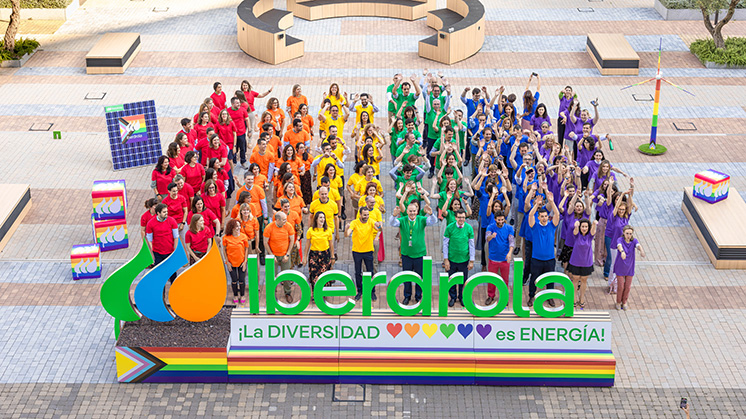
In many parts of the world LGBTIQ+ people (lesbian, gay, bisexual, transgender, intersex, queer and other identities and orientations) are discriminated against at work, at school, in public administrations and even in their own homes. They are often mistreated and become victims of physical attacks. In more than 70 countries, laws discriminate against same-gender relationships and they can be arrested, prosecuted and imprisoned, and in at least five countries, they can face the death penalty.
In recent years, many states have made a strong commitment to strengthening the protection of the LGBTIQ+ human rights, passing laws that prohibit discrimination, punish hate crimes, recognise their relationships and marriages, and make it easier for transgender people to obtain official documents that match their gender, according to the United Nations (UN). However, there is still a long way to go to achieve full equality.
International LGBTIQ+ Pride Day, which is celebrated every 28 June and in many countries extends throughout the month, represents the need to continue to demand and make visible respect for gender identity and sexual orientation.
Importance of diversity
LGBTIQ+ diversity refers to the plurality of gender identities and sexual orientations that exist in our society, i.e. an area that is part of individuals' personal lives. However, numerous studies show that most individuals often feel uncomfortable, rejected or even threatened by the possibility of their sexual orientation or identity being perceived by their environment.
The workplace is often a hostile place for LGBTIQ+ people. ManpowerGroup, a global leader in professional recruitment, reflects this discrimination in a survey conducted in 2021 on the level of inclusion of LGBTIQ+ community in the workplace − with 4,800 responses from 14 countries. According to the study, 53% of the participants revealed having heard inappropriate or derogatory language against them at work and 23.3% reported having been a victim of unpleasant comments because of their gender or sexual orientation.
In many parts of the world, the business community has outpaced legal and social change, according to the US non-profit organisation Out & Equal. This is exemplified by the Human Rights Campaign's Corporate Equality Index 2023-2024 External link, opens in new window. study: 93% of large Fortune 500 companies include sexual orientation protections, 91% include gender identity protections and 67% offer trans-inclusive healthcare coverage.
External link, opens in new window. study: 93% of large Fortune 500 companies include sexual orientation protections, 91% include gender identity protections and 67% offer trans-inclusive healthcare coverage.
Inclusion of diversity in the workplace and in society in general is becoming increasingly important with generational change. According to the Ipsos Pride 2024 External link, opens in new window. survey conducted in 26 countries, 17% of Generation Z respondents now identify themselves as part of Generation Z, compared to 11% of millennials, 6% of Generation X and 5% of baby boomers.
External link, opens in new window. survey conducted in 26 countries, 17% of Generation Z respondents now identify themselves as part of Generation Z, compared to 11% of millennials, 6% of Generation X and 5% of baby boomers.
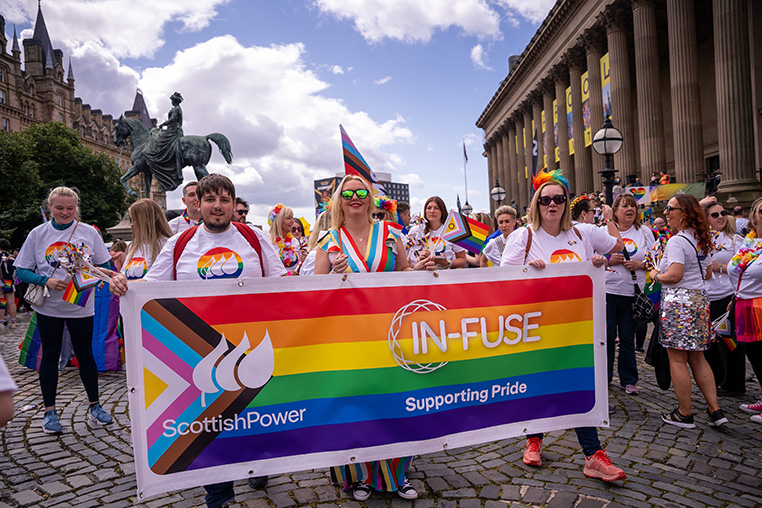
At Iberdrola we join in the celebration of International Pride Day for diversity.

At Iberdrola we join in the celebration of International Pride Day for diversity.
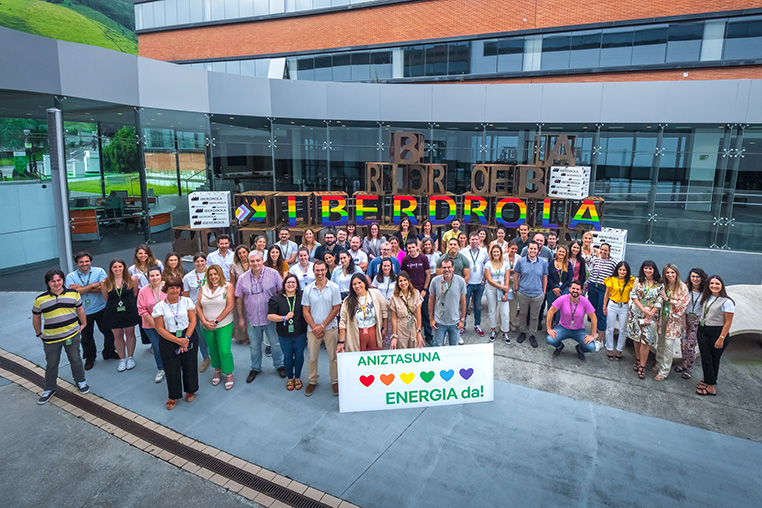
At Iberdrola we join in the celebration of International Pride Day for diversity.
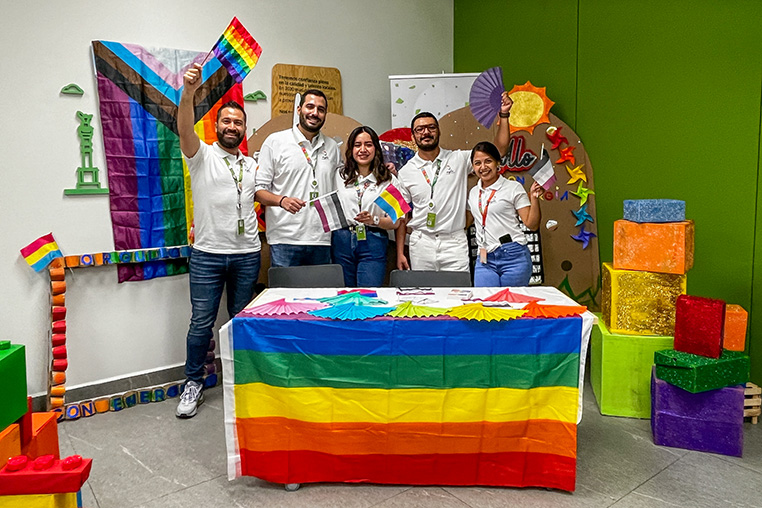
At Iberdrola we join in the celebration of International Pride Day for diversity.
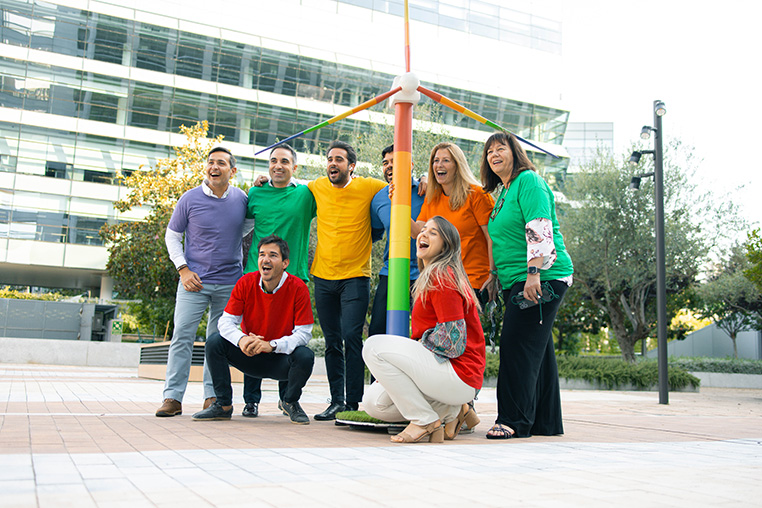
At Iberdrola we join in the celebration of International Pride Day for diversity.
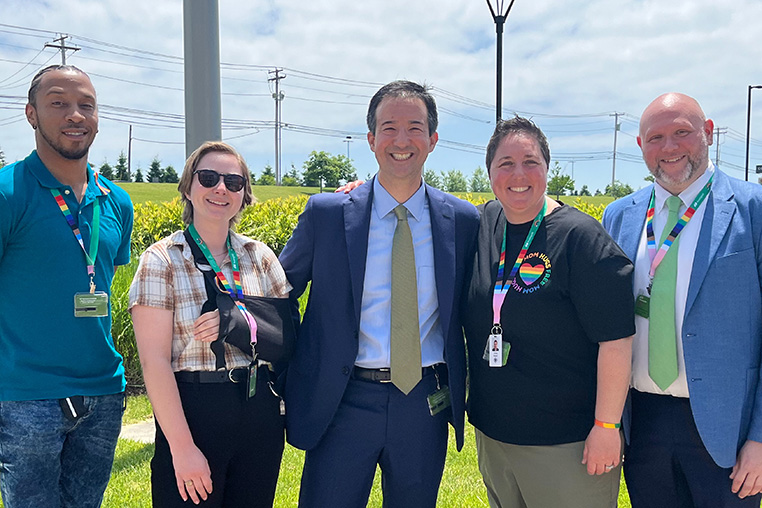
At Iberdrola we join in the celebration of International Pride Day for diversity.
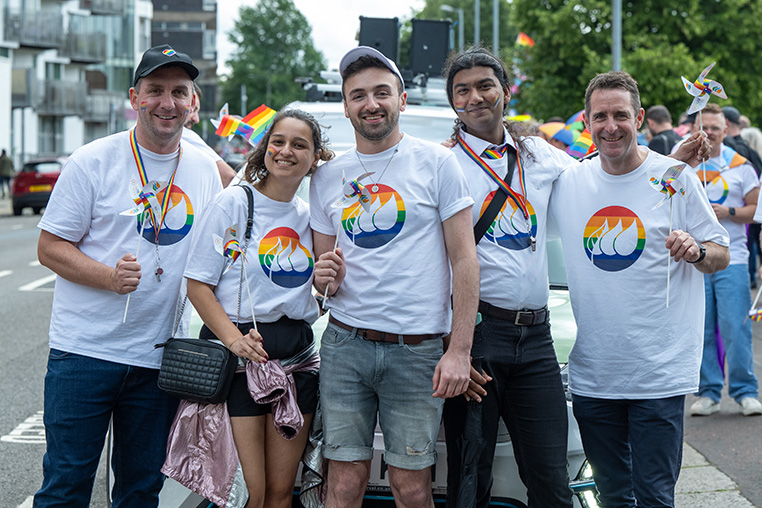
At Iberdrola we join in the celebration of International Pride Day for diversity.
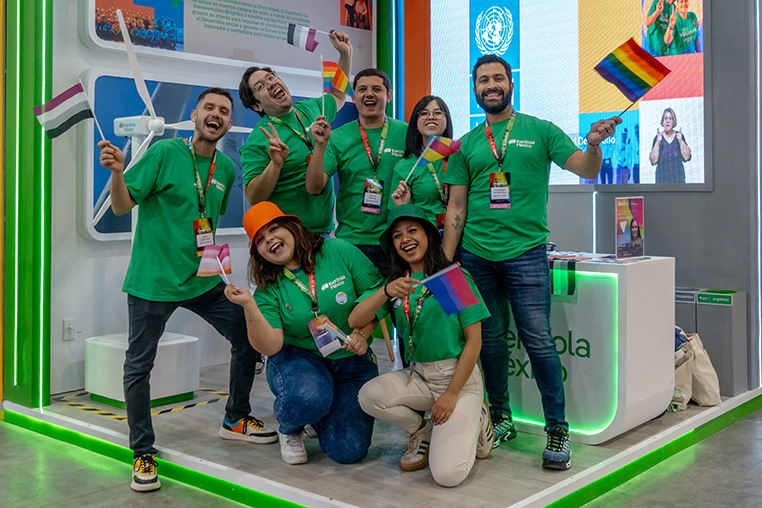
At Iberdrola we join in the celebration of International Pride Day for diversity.
Origin of Internatinal Pride Day
LGBTIQ+ Pride Day is celebrated on 28 June in commemoration of the Stonewall Riots, which took place in New York in 1969 and marked a turning point in the demand for LGBTIQ+ rights. In the early hours of that morning, the police raided the Stonewall Inn − a popular meeting place for LGBTIQ+ people in the Greenwich Village neighbourhood − to identify and arrest gay, lesbian and transgender people. This was nothing exceptional: LGBTIQ+ people were often the target of police harassment and violence in such actions.
However, the raid did not end as officers had hoped. Customers at Stonewall Inn and others from nearby venues gathered in the street and clashed with police in an unorganised protest and escalating violence. The riots resulted in 13 arrests and several protesters and police injured. The place was virtually destroyed.
The tensions culminated in a series of demonstrations and violent clashes that lasted several days. Within weeks, a number of LGBTIQ+ people organised themselves into activist groups to focus efforts, fight inequality and establish meeting places where they could openly express their gender identity or sexual orientation without fear of arrest. These protests and their organisation were seen as the spark of the modern LGBTIQ+rights movement around the world.
The first anniversary of the Stonewall Riots was commemorated with marches in New York, Los Angeles, San Francisco and Chicago − inaugurating the first Pride demonstrations. Over time, these protests have become annual celebrations around the world.
Objectives of celebrating this day
International LGBTIQ+ Pride Day is celebrated to promote equality, visibility and full inclusion in society. Some of the objectives of its celebration are the following:
![]() Make visible diversity of gender identities and sexual orientations
Make visible diversity of gender identities and sexual orientations
It is an opportunity for the LGBTIQ+ community to express themselves freely, celebrate their identity and show their pride in order to eradicate discrimination, promoting social acceptance.
![]() Claim rights
Claim rights
International LGBTIQ+ Pride Day is a day to celebrate the achievement of civil rights and to demand legal and social changes that promote equality and non-discrimination.
![]() Combat discrimination and violence
Combat discrimination and violence
One of the main objectives of this date is to make visible and condemn the discrimination, hatred and violence that many LGBTIQ+ people around the world still suffer. It is a wake-up call to fight homophobia, transphobia and other forms of oppression.
![]() Recognise history
Recognise history
This anniversary is an opportunity to remember important historical events, such as the Stonewall Riots, the legislative achievements made and the role models who have worked to achieve equality for the community.
![]() Raise awareness and solidarity
Raise awareness and solidarity
This international day also serves to make the society aware of the realities, challenges, stigmas and prejudices still experienced by the LGBTIQ+ community around the world.
Related information
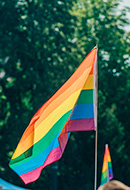
February, LGBT+ History Month
In-Fuse, ScottishPower's LGBT+ network, celebrates progress with diversity.
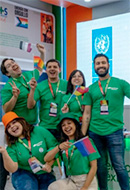
Iberdrola Mexico, Best LGBTQ+ Place to Work
Certification assesses the performance and commitment of companies.
What is being celebrated this year?
In celebration of International LGBTIQ+ Pride Day, colourful marches are called in line with the various pride flags that, through different shades, symbolise the movements of historically discriminated sexual orientations and gender identities. New York, LGBTIQ+ movement birthplace, traditionally holds one of the world's largest Pride parades, scheduled in 2024 for 30 June. Avangrid’s* community, our subsidiary in the United States, will join in with the Pride@Avangrid employee network.
The streets of São Paulo are hosting another of the most internationally known marches. This year, the motto is "Enough laziness and regression during the term of office: vote consciously for the rights of LGBT+ population" has framed the celebration on 2 June. After this, the Mexico City march is the second largest in Latin America and will take place on 29 June. At the European level, the best-known holiday is the one in Madrid, which is celebrated on the first Saturday in July and this 2024 will take place on 6 July. In addition, ScottishPower, our subsidiary in the United Kingdom, will join the commitment to diversity in the marches on 20 July in Glasgow and on 27 July in Liverpool.
The main protests of a festive nature are joined by a whole programme of parties, talks, activities, and workshops that are distributed in different parts of the cities and can last around one month in many countries. At Iberdrola, we are undertaking various actions in line with the celebration: flag-raisings, breakfasts, and talks to disseminate this demands at our offices in the United States, the United Kingdom, Spain, Brazil, and Mexico.
Iberdrola with diversity
At Iberdrola, we consider diversity and inclusion to be strategic priorities for sustainable growth, and we aim to ensure respect for these values both within the company and in our relations with external parties. For this reason, we have an innovative Diversity and Inclusion and Harassment Prevention Policy that brings together international best practices, and since its approval in 2008, we have made significant progress, as reflected annually in our Diversity and Inclusion Report, available on our Annual Reports page.
In addition, we have signed up External link, opens in new window. to the UN's LGTBI Standards of Conduct
External link, opens in new window. to the UN's LGTBI Standards of Conduct External link, opens in new window. , which aim to help the business community tackle discrimination on the basis of gender identity or sexual orientation. This initiative, adopted in 2017 by the UN Human Rights Office, is the first set of internationally accepted provisions on the responsibility of business to respect and promote the human rights of LGBTIQ+ people. Based on analysis of good practices globally, it sets out actions related to five principles for the workplace, marketplace and community:
External link, opens in new window. , which aim to help the business community tackle discrimination on the basis of gender identity or sexual orientation. This initiative, adopted in 2017 by the UN Human Rights Office, is the first set of internationally accepted provisions on the responsibility of business to respect and promote the human rights of LGBTIQ+ people. Based on analysis of good practices globally, it sets out actions related to five principles for the workplace, marketplace and community:
- Respect human rights
- Eliminate discrimination against LGTBI employees
- Provide support for LGTBI staff in the workplace
- Prevent other human rights violations
- Act in the public sphere
* Avangrid, Inc. is 81.5% owned by Iberdrola, S.A.




